THE VALIANT NELLIE McCLUNG
SELECTED WRITINGS
BY CANADAS
MOST FAMOUS SUFFRAGIST
Barbara Smith and Nellie McClung
foreword by Dave Obee
 VICTORIA | VANCOUVER | CALGARY
VICTORIA | VANCOUVER | CALGARY
Copyright 2016 Barbara Smith
Foreword copyright 2016 Dave Obee
Columns by Nellie McClung originally published by the Victoria Daily Times, 19371943
All rights reserved. No part of this publication may be reproduced, stored in a retrieval system, or transmitted in any form or by any meanselectronic, mechanical, audio recording, or otherwisewithout the written permission of the publisher or a licence from Access Copyright, Toronto, Canada.
Heritage House Publishing Company Ltd.
heritagehouse.ca
CATALOGUING INFORMATION AVAILABLE FROM LIBRARY AND ARCHIVES CANADA
978-1-77203-146-1 (pbk)
978-1-77203-147-8 (epub)
978-1-77203-148-5 (epdf)
Edited by Lara Kordic
Proofread by Merrie-Ellen Wilcox
Cover and interior book design by Jacqui Thomas
Cover photos: portrait of Nellie McClung, appearing in Farm and Ranch Review, January 2, 1930
Frontispiece and chapter opener photo: Nellie McClung, circa 19051922, by Cyril Jessop,
Cyril Jessop / Library and Archives Canada / PA-030212
We acknowledge the financial support of the Government of Canada through the Canada Book Fund (CBF) and the Canada Council for the Arts, and the Province of British Columbia through the British Columbia Arts Council and the Book Publishing Tax Credit.

For my great-granddaughter, Isabella Lilly
CONTENTS
FOREWORD
Why, after so many years, do the words of Nellie McClung continue to resonate with Canadians? Why do her opinions still matter so much? Why does the mention of her name still inspire us?
Perhaps its because she helped make Canada a better place. Perhaps its because Canadians are living better lives today because of her work, and without even knowing about the debt they owe to Nellie McClung.
The raw genealogical data shows that McClung was born in Chatsworth, Ontario, in 1873, and died in Saanich, British Columbia, in 1951. But really, that data does not mean much; it does not provide a sense of her determination and her dedication, and her commitment to achieve results despite overwhelming odds.
That women have the right to vote, as an example, is a given these days. More than a century ago, before men had granted that right, McClung and the other suffragettes faced an enormous struggle. It would have been easier to give up, and to find a cause that would seem more attainable.
Our Nellie did not give up. And later, when she joined with four other Albertans in the fight to have women recognized as persons under the law, she did not give up. McClung felt her cause was just, and she stayed with it, despite the odds.
Nellie McClung was a suffragette and a strong believer in the temperance movement. She was a politician and a reformer. She was an engaging orator and a prolific writer, with several books, magazine articles, and newspaper columns to her credit. She had a keen wit, which she used to great advantage when pushing for social change.
McClung was highly regarded in her lifetime, but her work has had much more recognition in the years since her death. She was featured on a Canadian postage stamp in 1973. A park in Edmonton bears her name, as do schools in Alberta, Manitoba, and Ontario, as well as a library branch in Saanich. She is remembered in the Famous Five monuments in Calgary and Ottawa, which in turn were featured on a fifty-dollar bill.
In 1954, the federal government declared that McClung was a person of national historic interest. In 2009, all members of the Famous Five were declared to be honorary senatorsthe first people to be so designated. Three of her former houses are heritage sites, and two more have been preserved at a museum in Manitoba.
While her books, such as Sowing Seeds in Danny and In Times Like These, have remained in the public eye, many of McClungs newspaper columns have been all but forgotten. Her early ones were collected in two Leaves from Lantern Lane volumes, but her later columns were neglected until the Victoria Times Colonist began reprinting them in 2014.
This book makes the columns accessible to a wide audience again, and will ensure that McClungs later work will be enjoyed for many years to come.
These columns included here were written at a remarkable time in history. The world was in turmoil, with events in Europe demanding attention around the globe. Her calm, rational point of view was what Canadians needed at the time.
Many of McClungs words seem as relevant now as when she wrote them, which indicates that a logical approach based on respect for human rights is timeless. In a few cases, her writing and her ideas seem dated, but that should not come as a surprise, given the passage of time.
It should also be no surprise that the work of Nellie McClung continues to inspire our nation, as it has for more than a century. She was one of the most influential Canadians of the first half of the twentieth century, and her work helped shape the Canada of today.
The Valiant Nellie McClung brings some of her most significant writing into the public eye once again. Its about time.
Dave Obee, Editor-in-Chief, Times Colonist

SAANICH ARCHIVES, # 2008-010 001
PROLOGUE
January 28, 1914.The weak winter sun set early in Winnipeg, Manitoba, but the palatial Walker Theatre was alight with activity. A din of expectant chatter rippled through the sold-out audience. Onstage behind the curtain, people and props were shuffled into place. The house lights dimmed, the crowd settled, and the performers drew in their collective breaths. A moment later the curtain rose on a presentation destined to change the course of Canadian history.
Nellie McClung sat at centre stage in the role of Sir Rodmond Roblin, the Conservative premier of Manitoba. She was a natural for the part, a clever mimic with an innate sense of dramatic timing. And she loved the limelight. Nellies friends and colleagues from the Canadian Womens Press Club and the Political Equality League were also seated on the stage, posing as members of parliament.
No detail had been overlooked. All the women wore black choir robes over their evening gowns. Two girls, one of them Nellies fifteen-year-old daughter, Florence, were dressed as parliamentary pages. The girls waited quietly in the wings until their servicesdelivering messages between the members or bringing them glasses of waterwere required. Other women played the roles of men presenting creative proposals to the premier.
Ripples of laughter greeted Nellies responses to various propositions set before her. The declaration that men should always be clad modestly in public, for instance, delighted the crowd.
Then, when a petition was presented requesting that men be granted the right to vote, Nellie blustered in a perfect imitation of Premier Roblins distinctive speaking style: I believe a man is made for something higher and better than voting. Men are made to support families. Politics unsettles men and unsettled men means unsettled bills, broken furniture, and broken vows, and divorce!


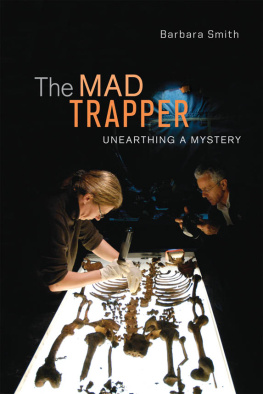
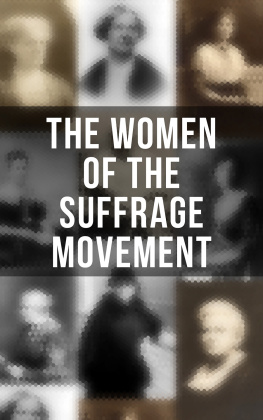
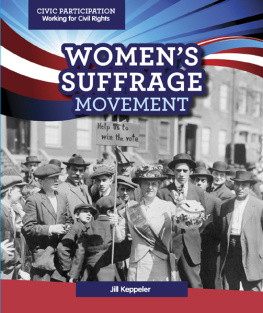
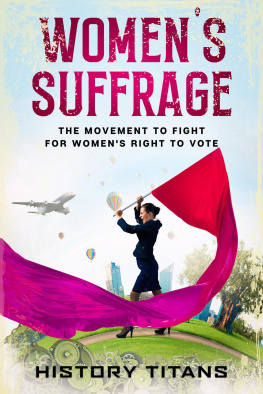
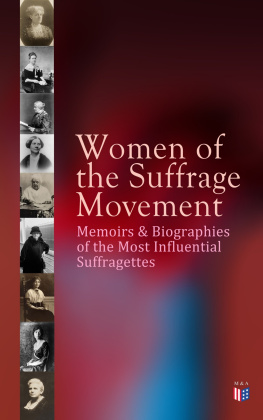
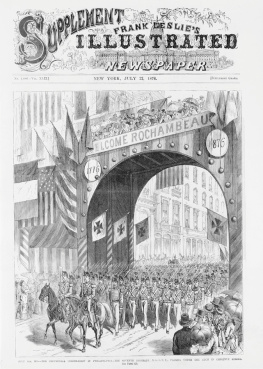

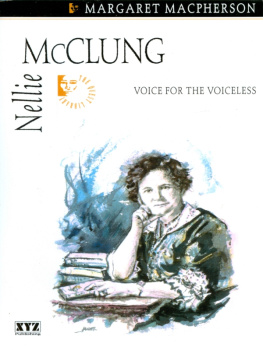

 VICTORIA | VANCOUVER | CALGARY
VICTORIA | VANCOUVER | CALGARY
